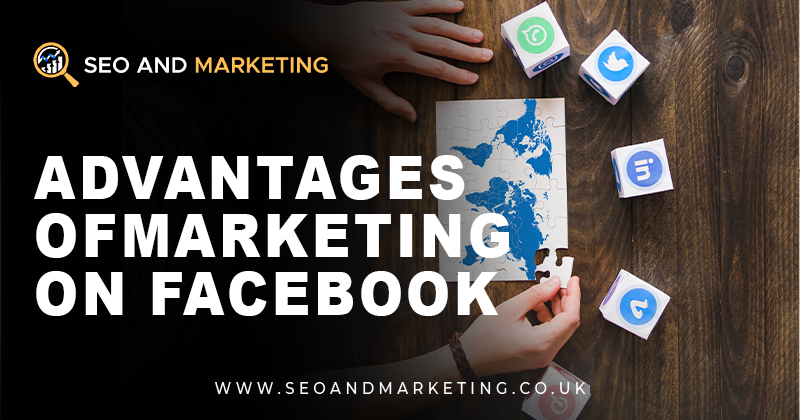Facebook marketing has become a crucial tactic for UK firms in the current digital era. Whether you’re a small local shop or a large corporation, Facebook marketing offers numerous benefits that can help you reach your target audience effectively and grow your business. In this article, we’ll explore the advantages of using facebook for marketing, provide step-by-step guidance on how to get started, and share some real-life anecdotes to make it all more relatable.
1. Massive User Base: A Major Advantage of Marketing on Facebook
One of the most significant advantages of marketing on Facebook is its enormous user base. As of 2024, there are over 45 million Facebook users in the UK alone. This vast audience provides a unique opportunity to reach a large number of potential customers.
Consider Jane, a small business owner from London who sells handmade jewellery. By creating a Facebook page and regularly posting engaging content, she was able to attract thousands of followers, leading to a significant increase in sales.
2. Targeted Advertising
Facebook’s advertising platform is incredibly sophisticated, allowing you to target your ads to specific demographics, interests, and behaviors. This means you can ensure that your ads are seen by the people most likely to be interested in your products or services.
For instance, a Manchester-based gym can use Facebook ads to target local fitness enthusiasts, ensuring that their promotional offers reach the right audience. By doing so, they can maximize their return on investment (ROI) and attract more members.
3. Cost-Effective Marketing
Facebook marketing is highly cost-effective compared to traditional advertising methods. You can set your own budget and only pay when users interact with your ads (such as by clicking or viewing).
For example, a start-up company in Edinburgh could run a Facebook ad campaign with a limited budget of £100 and still achieve impressive results. By carefully monitoring their ad performance and adjusting their strategy, they can optimize their spending and get the most out of their investment.
4. Engagement and Interaction
Facebook provides various tools for engagement and interaction with your audience. You can create posts, share videos, host live events, and respond to comments and messages in real-time. This level of interaction helps build a loyal community around your brand.
Imagine a local restaurant in Birmingham that uses Facebook to share daily specials and behind-the-scenes content by actively engaging with their customers, they create a sense of community and encourage repeat visits.
5. Insights and Analytics
With Facebook Insights, you can track the performance of your posts and ads, gaining valuable insights into what works and what doesn’t. This data-driven approach allows you to refine your strategy and improve your results over time.
For example, an online clothing store in Glasgow can use Facebook Insights to understand which types of posts generate the most engagement. By analyzing this data, they can focus on creating more of the content that their audience loves, driving higher engagement and sales.
Step-by-Step Guide to Start Facebook Marketing
- Create a Facebook Business Page: Go to Facebook Business and click on “Create a Page.” Follow the prompts to set up your page with all the necessary information about your business.
- Define Your Goals: Determine what you want to achieve with your Facebook marketing . Are you looking to increase brand awareness, drive traffic to your website, or boost sales?
- Identify Your Target Audience: Use Facebook’s audience targeting options to define your ideal customer based on demographics, interests, and behaviors.
- Create Engaging Content: Post regularly and share content that is interesting, valuable, and relevant to your audience. Use a mix of images, videos, and text to keep things varied.
- Run Facebook Ads: Set up your first ad campaign by clicking on “Create Ad” in the Facebook Ads Manager. Choose your objective, define your audience, set your budget, and create your ad.
- Monitor and Adjust: Use Facebook Insights to track the performance of your posts and ads. Adjust your strategy based on what the data tells you to continually improve your results.
Real-Life Anecdotes
Consider Tom, the owner of a small bookshop in Liverpool. Initially, he was skeptical about the benefits of Facebook marketing. However, after attending a local workshop on social media marketing, he decided to give it a try. He created a Facebook page for his shop and started posting about new arrivals and special events. Within a few months, his page gained a loyal following, and he saw a noticeable increase in foot traffic and sales.
Similarly, Sarah, a freelance graphic designer from Bristol, used Facebook ads to promote her services. By targeting local businesses and showcasing her portfolio, she was able to land several new clients. The cost-effectiveness and precise targeting of Facebook ads allowed her to grow her business without breaking the bank.
Conclusion
In conclusion, marketing on facebook offers numerous advantages for businesses in the UK. With its massive user base, targeted advertising options, cost-effectiveness, engagement tools, and detailed analytics, Facebook provides a powerful platform for reaching and connecting with your audience. By following the step-by-step guide and learning from real-life anecdotes, you can confidently leverage Facebook marketing to grow your business.


